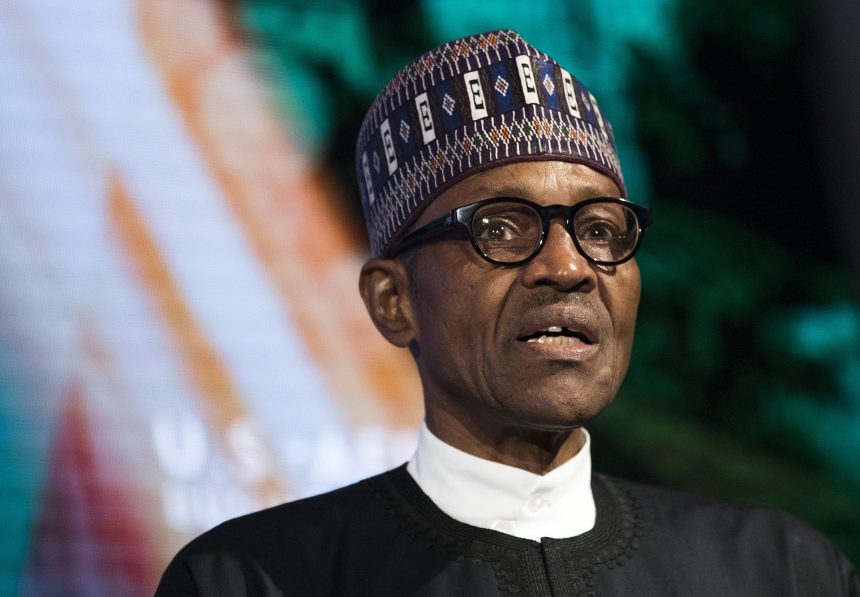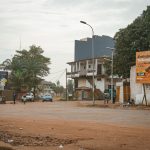[ad_1]
Abuja, Nigeria – Nigerian President Muhammadu Buhari has handed over the reins of power to fellow party man Ahmed Bola Tinubu of the All Progressives Congress (APC), leaving charge with a legacy very different to the one voters had hoped for when they elected him eight years ago.
His 2015 victory over Goodluck Jonathan, the first defeat of an incumbent president in Nigerian history, was his second stint in power after an August 1985 palace coup ended his 18-month stint as military ruler.
Success at the polls came after three consecutive failed attempts by Buhari to return to the presidency as an electorate turned to a man from its past out of frustration with Jonathan, a meek leader who critics said was better suited to his previous life as a zoology lecturer than as president of Africa’s largest democracy.
Buhari’s winning campaign had emphasised three key promises: to tackle insecurity, stem corruption and fix economic troubles. But as he leaves office after two terms, not many rate his scorecard as being better than the man he succeeded despite embarking on a vast infrastructure drive.
Under Buhari, Nigeria became the world’s poverty capital – 133 million of his compatriots now live in abject poverty. When his staunch ally and Kano Governor Umar Ganduje was seen stuffing dollar notes believed to be contract kickbacks into his robe in a viral video, Buhari defended him, claiming the videos were doctored.
This year, even Tinubu, credited as the strategist behind APC’s 2015 victory, criticised the government and distanced himself from Buhari’s achievements, or lack of them, on the campaign trail.
“It is only a person who is deaf and dumb that will say Nigeria is doing well … and it is disappointing that the president is not seeing it the way we are seeing it,” said Frank Kokori, an APC leader, in August 2022. “People were ready to die for Buhari in 2014 to 2015, but unfortunately, Buhari has squandered all his goodwill.”
‘Baba Go Slow’
The first indication that the Buhari presidency would be an exhaustive exercise in long-suffering was his failure to announce a cabinet until five months in office. That delay earned him the moniker “Baba Go Slow”, a cheeky reference to the signature traffic jams in Nigeria’s commercial capital, Lagos.
The cabinet list was a roll call of has-beens and geriatric party stalwarts, including one minister who returned to office three decades after he was first appointed. “Some of his appointments were not ideal, and he may have not appointed competent individuals for key roles in government,” Ayodeji Dawodu, a director at the London-based investment group BancTrust & Co, told Al Jazeera. “In addition to this, he may have been ill-advised in some of his own decision-making.”
In Buhari’s eight years in office, he also appointed at least six deceased people to boards of federal agencies. A series of similar missteps and inaction throttled the economy, leading to two recessions in five years, analysts said. As Buhari leaves office, the naira has lost 70 percent of its value to the dollar compared with 2015, and inflation is at an 18-year high.
According to data from Nigeria’s Debt Management Office, debt is at a record of about $150bn. This has forced Africa’s largest economy to use 96 percent of its revenue to service these ballooning obligations.
In October, the central bank announced a redesign of the 200, 500 and 1,000 naira notes to mop up excess cash in circulation and rein in inflation ahead of the election. The Buhari-backed move led to a cash shortage. Seven months later, the policy was suspended.
In 2019, he ordered the closure of land borders to restrict imports, end smuggling and boost local production. Instead, inflation spiked as food costs soared, and relations with neighbouring and dependent economies – like Benin, Ghana and Niger – were strained.
The economy never recovered from that, according to Wilson Erumebor, senior economist at the Nigerian Economic Summit Group and a doctoral researcher at SOAS University of London.
“Since the border closure, quarterly trade data from the National Bureau of Statistics showed that the value of non-oil exports has never attained its peak of 1.08 trillion naira ($2.34bn) in the third quarter of 2019 over three years after the border closure was introduced,” he said.
The move also undermined Nigeria’s commitment to the African Continental Free Trade Agreement, the continent-wide free trade area, and freedom of movement in the 15-nation Economic Community of West Africa States (ECOWAS).
“It was not in tandem with Nigeria’s foreign policy, … [so] ECOWAS were not too happy,” Remi Ajibewa, director of political affairs at the ECOWAS Commission at the time, told Al Jazeera. “Why would the big brother who calls himself the giant of Africa be closing its border against them, given the fact that there is a large market in Nigeria and they see Nigeria as one of the countries they could rely on?”
The administration seemed to lack a coherent foreign policy and failed to act swiftly on matters concerning Nigerians abroad. The government was slow to evacuate its nationals in South Africa during xenophobic attacks there in 2019 as well as when conflict broke out in Ukraine in 2022 and Sudan in April.
Over time, Nigeria’s international standing dwindled.
“I can see countries don’t respect us much given the fact that they see that we have not been able to be dynamic and strong enough,” Ajibewa said.
‘Uniquely selfish’
Local daily Punch estimated that the president spent 225 days on medical leave, including a three-and-half-month stretch in 2017. Another absence spurred a conspiracy theory that he had died in London and was replaced in Abuja by a body double from Sudan.
Even when he was healthy and in Abuja, Buhari was widely seen as uncaring because of the presidency’s slow response – or none at all – to nationwide tragedies. Some insiders in the presidency suggested he was “uniquely selfish” and showed an inability to keep up with the times.
“The president does not delegate responsibilities – he abdicates responsibilities,” the governor of a northern state and close ally to the president lamented to his advisers once, as one of them told Al Jazeera on the condition of anonymity.
When Buhari’s chief of staff died of COVID-19 in 2020, things fell apart for the presidency even more. Tensions between cabinet members and heads of government agencies routinely spilled into the public domain, sometimes including accusations of graft and misuse of office.
Buhari’s seeming aloofness to all the crises around him inspired viral memes. After his office posted a photo on social media showing him sitting barefoot in the presidential palace while using a toothpick, a meme replaced the palace background in the picture with the scene of a mass killing.
That a Presidency @AsoRock and their allies found this unflattering “Fiddling-Nero-type-picture” of the @NGRPresident worthy of public view really does take their celebration of deadly Incompetence to a stratospheric realm.
But then, it really is Governance of tooth-picking👎🏾 pic.twitter.com/OwIOUEyxlR— Oby Ezekwesili (@obyezeks) August 12, 2019
That perception of nonchalance extended to matters of security too.
Buhari came to power on the promise of reversing armed group Boko Haram’s gains in the northeast, relying on his experience as a civil war veteran and general in the Nigerian army, long respected for its strength in peacekeeping operations across Africa.
Soon after he was sworn in, he issued a deadline of December 31, 2015, for defeating the rebels. When the deadline expired, information minister Lai Mohammed infamously declared that the group had been “technically defeated” even though it was still carrying out attacks.
“There was a false sense of success [this] administration basked in instead of building on the success the previous administration had led,” Malik Samuel, an Abuja-based researcher at the Institute of Security Studies, told Al Jazeera, referring to the Jonathan government’s last-minute successes in recapturing some areas controlled by Boko Haram before leaving office.
Nigeria’s overburdened security agencies are now battling multiple armed groups across the country, including Boko Haram factions like the Islamic State West Africa Province.
There are also violent secessionist groups in the southeast and ransom-hungry armed bandits kidnapping and killing in parts of northern and central Nigeria.
According to the Nigeria Security Tracker, a project of the Council of Foreign Relations, 98,083 people have been killed in documented cases of violence by armed state and non-state actors in Nigeria since the count began in May 2011. Two-thirds of those fatalities happened during Buhari’s eight years as president.
“With the experiences people have had from when he came into office to date, I will say we have not progressed with regards to dealing with the threat, which was one of the reasons behind his success at the polls,” Samuel said.
Human rights
In his first stint in power in the 1980s, Buhari pushed through laws that introduced the death penalty for drug trafficking and empowered law enforcement agencies to clamp down on the media for reports considered detrimental to the government. They also applied retroactively.
Ahead of the 2015 vote, he was marketed as a democrat who had shed his past authoritarianism. Even Nobel literature laureate Wole Soyinka branded him as a ‘reformed dictator’.
But the administration went on to perpetuate a litany of human rights abuses, ignoring court orders as routinely as it targeted journalists and dissidents.
The National Broadcasting Commission frequently punished television and radio stations for any views deemed critical of the government with fines and suspensions of licenses. Twitter too was not spared. After the platform removed one of Buhari’s tweets, it was banned for seven months.
Security agencies carried out multiple extrajudicial killings, including the 2015 deaths of more than 300 Shia Muslims in the northwestern state of Kaduna. Three years later, the army opened fire on Shia protesters in Abuja, justifying it with a video of US President Donald Trump suggesting that American soldiers could respond with force to migrants at the country’s southern border who throw rocks at the military.
There were also multiple reports of murders of civilians in areas where the military was ordered to contain communal violence.
“His body language has given encouragement to security agents, which has resulted in massive human rights violations that we continue to see on a daily basis,” Samuel said. Had Buhari held officers in key positions responsible for their actions, he said, “I don’t think we will [be] talking too much about these issues.”
In October 2020, at least 10 people were killed, according to Amnesty International, during a week of peaceful protests by young people against police brutality. There was a “lack of adequate measures for accountability for security forces abuses”, Anietie Ewang, Nigeria researcher at Human Rights Watch, told Al Jazeera. “These are very emblematic cases that show how [the] Buhari administration rolled [back] some of the fundamental rights that we had been able to almost consolidate.”
Calling card infrastructure
Still, Buhari supporters say no other president has focused on infrastructure as much as he did – there was a construction spree of rail lines and crucial bridges and dozens of interstate highways.
They also point to social protection programmes targeting low-income households. One such programme, the conditional cash transfer programme, doled out a monthly stipend of 5,000 naira ($13.83) to more than 784,000 of the country’s most vulnerable people.
But even those achievements have drawn scrutiny for their poor implementation.
The Abuja metro, commissioned with fanfare in 2018 after construction with Chinese-funded loans, is barely used today. Other rail projects have dragged on for years.
Despite the launch of several power plants and signing of agreements for more, the national grid has crashed more than 100 times in eight years, repeatedly throwing the country into darkness.
For some Nigerians, a new era cannot come soon enough. For others, Buhari’s failures have only reinforced their scepticism.
“At this point,” 57-year-old bus driver Olusegun Badmus told Al Jazeera, ” I have my faith in God and not politicians.”
[ad_2]
Source link












